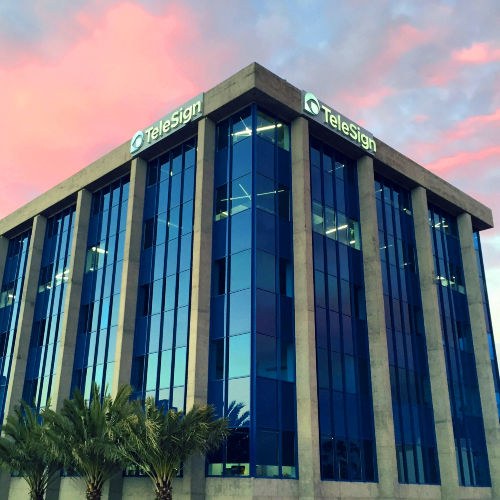The Marina del Rey-based company is the developer of identity verification technology used by thousands of companies to authenticate user logins and safeguard customers’ account security.
“Any time you’re signing on to an account from your mobile phone, there’s a good chance that TeleSign is there, whether you know it or not,” Chief Executive Joe Burton said.
The company has grown steadily since launching in 2005 and today processes billions of online transactions monthly. Now, TeleSign is preparing for the next stage of its development with plans to go public later this year.
It was acquired by Belgium-based Belgacom International Carrier Services in 2017 and became a subsidiary of Proximus Group last year when Proximus acquired full ownership of BICS.
In December, however, TeleSign announced it would combine with blank check company North Atlantic Acquisition Corp. in a reverse merger that will make the mobile authentication company a publicly traded company.
The deal values TeleSign at $1.3 billion and will supply it with roughly $487 million in capital to fund its continued growth. The business combination is subject to regulatory review and shareholder approval but is expected to be completed in the second quarter of this year.
According to Burton, that money will primarily go toward a major hiring effort as the company expects to grow from around 500 employees to 1,100 over the next five years.
Burton said the additional staff will be needed to handle organic growth as demand increases for the services TeleSign provides. According to a 2021 report from consulting firm Verified Market Research, the mobile user authentication market is expected to grow at an annual rate of more than 25% between now and 2027.
TeleSign, meanwhile, projects its revenue will increase from just under $400 million this year to $1.1 billion by 2026.
Burton acknowledged that this is a “rather heady goal” but said the company is well-positioned to take advantage of a growing need for its technology.
“We’re not talking about an extraordinary amount of market share,” said Burton. “This is a market that we feel, with our history of innovation and our history of growth in the past, is completely achievable for us.”

